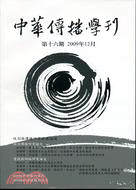 閱覽人數: 1417
閱覽人數: 1417
December
2009
No. 16
性別與傳播研究前瞻論壇
The Current Scholarship and Suggestions for Future Research in Feminist Studies頁數:25 - 34
作者(中)
方念萱
作者(英)
Nien-Hsuan Fang
中文摘要
本文旨在回應楊芳枝教授〈國科會傳播與文化研究學門性別研究前瞻熱門議題規劃成果報告〉一文,從楊文所提本地研究聚焦再現出發,引述他國他地性別傳播研究的範疇、主題、主體以及運動與學術並進的策略,強調性別傳播研究產製的知識必須能為女性所用,研究方法必須沒有壓迫性,而研究所具備的批判性觀點必須同時向主流學術傳統提出質疑,同步反思自己研究的限制與挑戰。
英文摘要
This article aims to respond to the claims Professor Fang-Chi Yang poses in her article. The analysis of the recent publications on communication and gender in Taiwan reveals that most of the research explores the problematic representations of genders while the issues other than media representations are seldom thematized here. Focusing on these characteristics pertaining to journal articles and graduate students' theses, this article raises the issue of the potential for emancipation conveyed by the research related to communication and gender and the need to further examine the methods adopted, the subjectivity targeted and also, last but not least, the alliance created by the researchers with similar interests who sustain the feminist tradition of reflexivity in delving into the practice of researchers and the research.